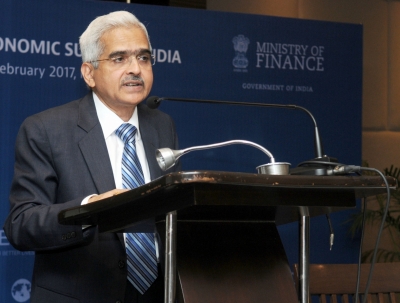Mumbai– India is on the cusp of a turnaround in fortunes as the caseload of Covid-19 declined in the country along with emergence of post-pandemic opportunities in several sectors, Reserve Bank Governor Shaktikanta Das said on Thursday.
Addressing the Bombay Chamber of Commerce and Industry, he said: “Overall, we are on the cusp of a turnaround in fortunes. In contrast to the rest of the world, the caseload of Covid-19 in India has declined and it is crucial for us to consolidate this decline and capitalise on the success that has been hard-earned.”
“The infection caseload in some parts of the country is, however, again creeping up. We need to stay vigilant and steadfast, and on our toes.”
Besides, Das cited the emergence of post-covid opportunities in India in seven key areas such as manufacturing and infrastructure, micro, small and medium enterprises, technology and innovation, health, free trade agreements, and services exports.
On the FTAs, he said: “While designing future FTAs, India’s experience with FTAs can be a significant guidepost. Key considerations should be to identify countries and regions that not only have the potential as a market for domestic goods and services but also have the scope to enhance domestic competitiveness, especially in sectors covered under the PLI scheme.”
“The post-Brexit scenario offers a greater scope for having separate trade agreements with the UK and the European Union. FTAs with these economies can boost not only the bilateral trade and investment relations but may also pave the way for greater collaboration in the areas of scientific research and climate change.”
Furthermore, he said that due to favourable demographic dividend, Africa also offers immense potential for exports and investment from Indian firms.
In terms of India’s fiscal and monetary policy responses during the Covid-19, the RBI Governor said: “Unlike many central banks, the RBI’s asset purchases did not dilute its balance sheet and hence, did not compromise on core principles of central banking. These purchases were confined to risk-free sovereign bonds only.”
“The focus was to foster congenial financing conditions without jeopardising financial stability.”
In addition, he said that forward guidance gained prominence in the Reserve Bank’s communication strategy to realise cooperative outcomes.
“Our commitment to ensure ample liquidity conditions supportive of recovery dispelled illiquidity fears and bolstered market sentiments. We will continue to support the recovery process through the provision of ample liquidity in the system, while maintaining financial stability.” (IANS)








